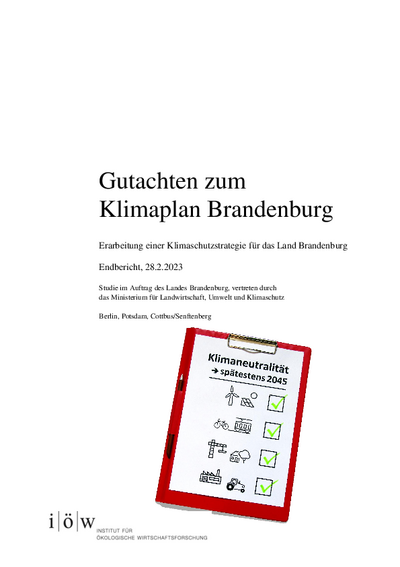Expert report for the Brandenburg Climate Plan Development of a climate protection strategy for the state of Brandenburg
The state of Brandenburg wants to become climate neutral by 2045 at the latest in order to contribute to achieving the targets of the Paris Agreement. In a study, the Institute for Ecological Economy Research (IÖW), together with partners, has developed scientific scenarios for this on behalf of the State of Brandenburg, represented by the Ministry of Agriculture, Environment and Climate Protection.
The study also contains proposed measures that will serve as the basis for the climate plan that the Brandenburg state government intends to develop and adopt in 2023. These are divided according to the sectors that are significantly related to greenhouse gas emissions. So far, Brandenburg is not yet on the path to climate neutrality, which is why the phase-out of coal, the expansion of renewable energies, the change in heating and transport, the conversion to a climate-neutral economy, the strengthening of forests and the protection of moorland in particular must be driven forward.
In total, the study proposes more than 80 bundles of measures for the eight fields of action of the climate plan. Proposed measures include the planning and approval of wind and solar energy as well as increasing acceptance and participation, the expansion of local public transport or the rewetting of peatlands for carbon storage. For implementation, political steering under the keyword "climate governance" is particularly important. In addition to the pioneering role that the state must take, the municipalities must be supported in their implementation.



